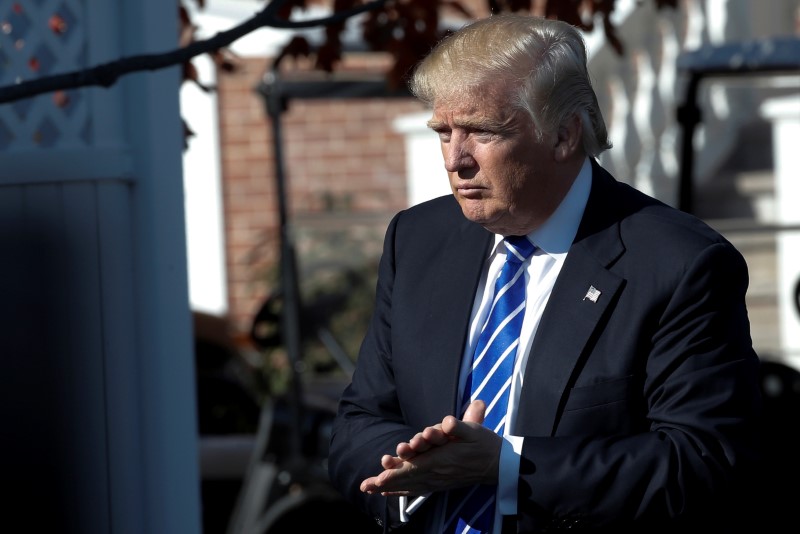By Emily Stephenson, Julia Harte, Nate Raymond and Susan Heavey
(Reuters) - U.S. Republican President-elect Donald Trump's charitable foundation said it violated a ban on so-called "self-dealing" by transferring income or assets to a "disqualified person," according to a copy of its 2015 tax filings made public this week.
The Donald J. Trump Foundation's Internal Revenue Service forms, first reported by The Washington Post on Tuesday, showed that the organization said "yes" when asked if it had transferred "any income or assets to a disqualified person.
Asked if it had violated the ban on so-called self-dealing in prior years, the foundation also said "yes," according to the forms, also viewed by Reuters.
According to the IRS, self-dealing can include the "transfer to, or use by or for the benefit of a disqualified person of the asset of a foundation," except for certain exemptions.
On the forms, Trump's foundation said "yes" when asked if any of the income or assets transfers failed to qualify as IRS exemptions.
The 30-page filing was signed by the foundation's treasurer, Donald Bender, but not dated, and it was unclear whether they had been filed with the IRS.
Representatives for Trump and the foundation did not immediately respond to requests for comment.
The forms were posted late on Monday on the website for Guidestar, which tracks nonprofit organizations, according to the Post, which also said it could not confirm whether the forms had actually been sent to the IRS.
On Oct. 4, New York state Attorney General Eric Schneiderman ordered the foundation to immediately stop fundraising in the state, accusing it of having violated a state law requiring charitable organizations that solicit outside donations to register with his office's Charities Bureau.

The order followed a series of reports in the Post that suggested improprieties by the foundation, including using its funds to settle legal disputes involving Trump businesses.
The Post said Trump might have violated IRS rules against “self-dealing” by using foundation money to purchase two portraits of himself, which were then hung at his private golf clubs in New York and Florida.
Trump's campaign suggested that the probe launched by Schneiderman, a Democrat, was politically motivated.